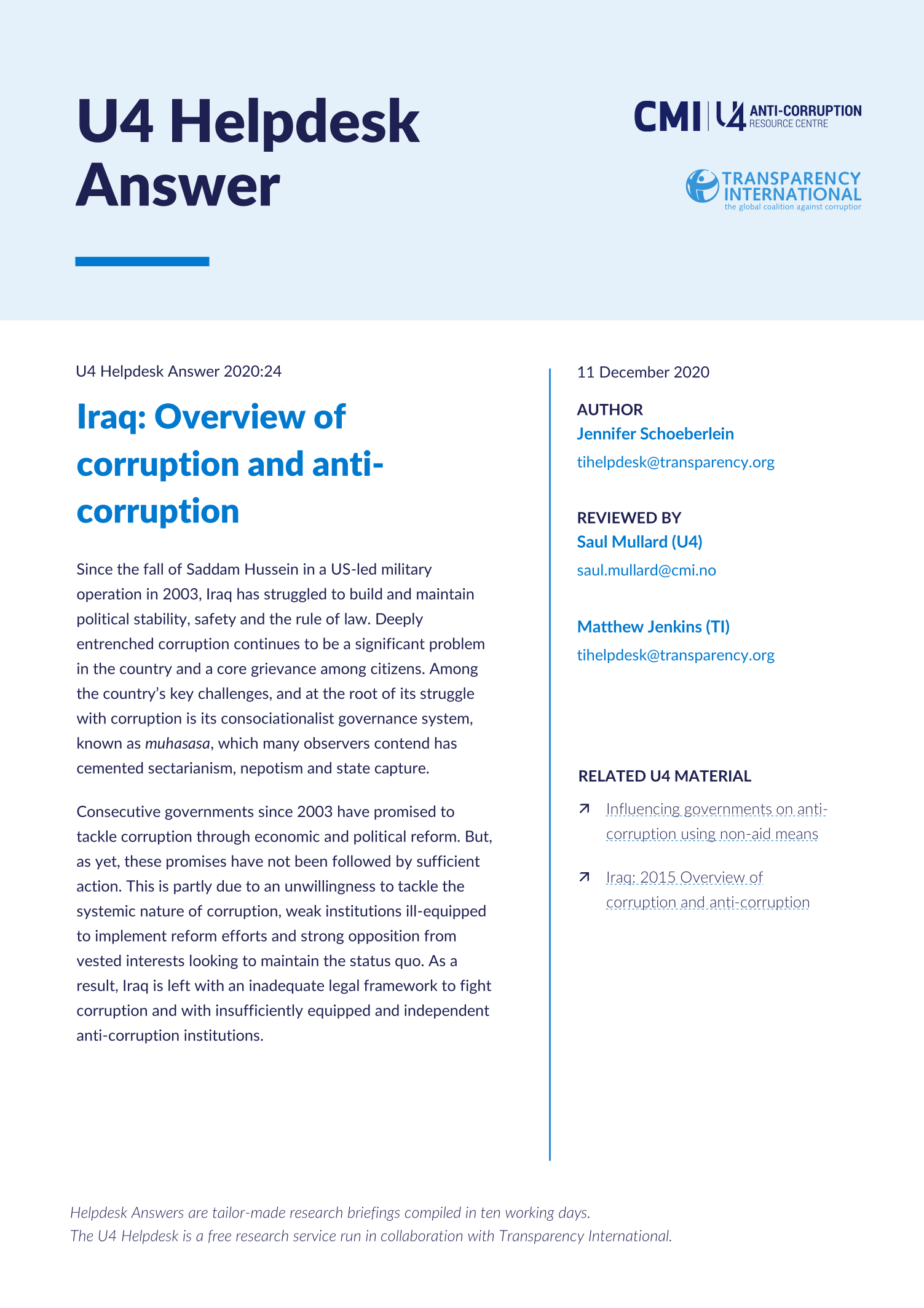Main points
- A recent history of political instability, violence and authoritarianism have left Iraq with weak institutions, weak rule of law and vested interests resistant to reform.
- Sectarianism has decreased in recent years, allowing for a greater focus on issue-based politics. But it is still deeply entrenched in Iraq’s governing system, which is at the root of many of the country’s corruption challenges.
- The state’s dominant position in the economy, an underdeveloped private sector, overreliance on oil and the role of militias have facilitated high levels of state capture.
- Recent years have seen citizen perceptions about corruption worsen and trust in government and its institutions declining, indicating a growing gap between citizens and the state.
- A powerful protest movement against corruption emerged in recent years which, in a first, cuts across sectarian lines and makes concrete demands on government, pressuring the latter to issue more meaningful reforms.


